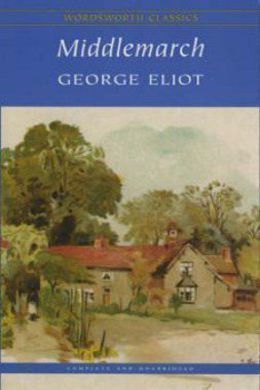
-
EPUB 887 KB
-
Kindle 1.13 MB
-
Support epubBooks by making a small $2.99 PayPal donation purchase.
Description
Often called the greatest nineteenth-century British novelist, George Eliot (the pen name of Mary Ann Evans) created in Middlemarch a vast panorama of life in a provincial Midlands town. At the story’s center stands the intellectual and idealistic Dorothea Brooke—a character who in many ways resembles Eliot herself. But the very qualities that set Dorothea apart from the materialistic, mean-spirited society around her also lead her into a disastrous marriage with a man she mistakes for her soul mate. In a parallel story, young doctor Tertius Lydgate, who is equally idealistic, falls in love with the pretty but vain and superficial Rosamund Vincy, whom he marries to his ruin. Eliot surrounds her main figures with a gallery of characters drawn from every social class, from laborers and shopkeepers to the rising middle class to members of the wealthy, landed gentry. Together they form an extraordinarily rich and precisely detailed portrait of English provincial life in the 1830s. But Dorothea’s and Lydgate’s struggles to retain their moral integrity in the midst of temptation and tragedy remind us that their world is very much like our own. Strikingly modern in its painful ironies and psychological insight, Middlemarch was pivotal in the shaping of twentieth-century literary realism.
1313 pages with a reading time of ~20 hours (328250 words), and first published in 1874. This DRM-Free edition published by epubBooks, 2010.
Community Reviews
-
A detailed look at early nineteenth century life in England that is well worth reading!
Jul 4
Excerpt
Miss Brooke had that kind of beauty which seems to be thrown into relief by poor dress. Her hand and wrist were so finely formed that she could wear sleeves not less bare of style than those in which the Blessed Virgin appeared to Italian painters; and her profile as well as her stature and bearing seemed to gain the more dignity from her plain garments, which by the side of provincial fashion gave her the impressiveness of a fine quotation from the Bible,—or from one of our elder poets,—in a paragraph of to–day’s newspaper. She was usually spoken of as being remarkably clever, but with the addition that her sister Celia had more common–sense. Nevertheless, Celia wore scarcely more trimmings; and it was only to close observers that her dress differed from her sister’s, and had a shade of coquetry in its arrangements; for Miss Brooke’s plain dressing was due to mixed conditions, in most of which her sister shared. The pride of being ladies had something to do with it: the Brooke connections, though not exactly aristocratic, were unquestionably “good:” if you inquired backward for a generation or two, you would not find any yard–measuring or parcel–tying forefathers—anything lower than an admiral or a clergyman; and there was even an ancestor discernible as a Puritan gentleman who served under Cromwell, but afterwards conformed, and managed to come out of all political troubles as the proprietor of a respectable family estate. Young women of such birth, living in a quiet country–house, and attending a village church hardly larger than a parlor, naturally regarded frippery as the ambition of a huckster’s daughter. Then there was well–bred economy, which in those days made show in dress the first item to be deducted from, when any margin was required for expenses more distinctive of rank. Such reasons would have been enough to account for plain dress, quite apart from religious feeling; but in Miss Brooke’s case, religion alone would have determined it; and Celia mildly acquiesced in all her sister’s sentiments, only infusing them with that common–sense which is able to accept momentous doctrines without any eccentric agitation. Dorothea knew many passages of Pascal’s Pensees and of Jeremy Taylor by heart; and to her the destinies of mankind, seen by the light of Christianity, made the solicitudes of feminine fashion appear an occupation for Bedlam. She could not reconcile the anxieties of a spiritual life involving eternal consequences, with a keen interest in gimp and artificial protrusions of drapery. Her mind was theoretic, and yearned by its nature after some lofty conception of the world which might frankly include the parish of Tipton and her own rule of conduct there; she was enamoured of intensity and greatness, and rash in embracing whatever seemed to her to have those aspects; likely to seek martyrdom, to make retractations, and then to incur martyrdom after all in a quarter where she had not sought it. Certainly such elements in the character of a marriageable girl tended to interfere with her lot, and hinder it from being decided according to custom, by good looks, vanity, and merely canine affection. With all this, she, the elder of the sisters, was not yet twenty, and they had both been educated, since they were about twelve years old and had lost their parents, on plans at once narrow and promiscuous, first in an English family and afterwards in a Swiss family at Lausanne, their bachelor uncle and guardian trying in this way to remedy the disadvantages of their orphaned condition.
